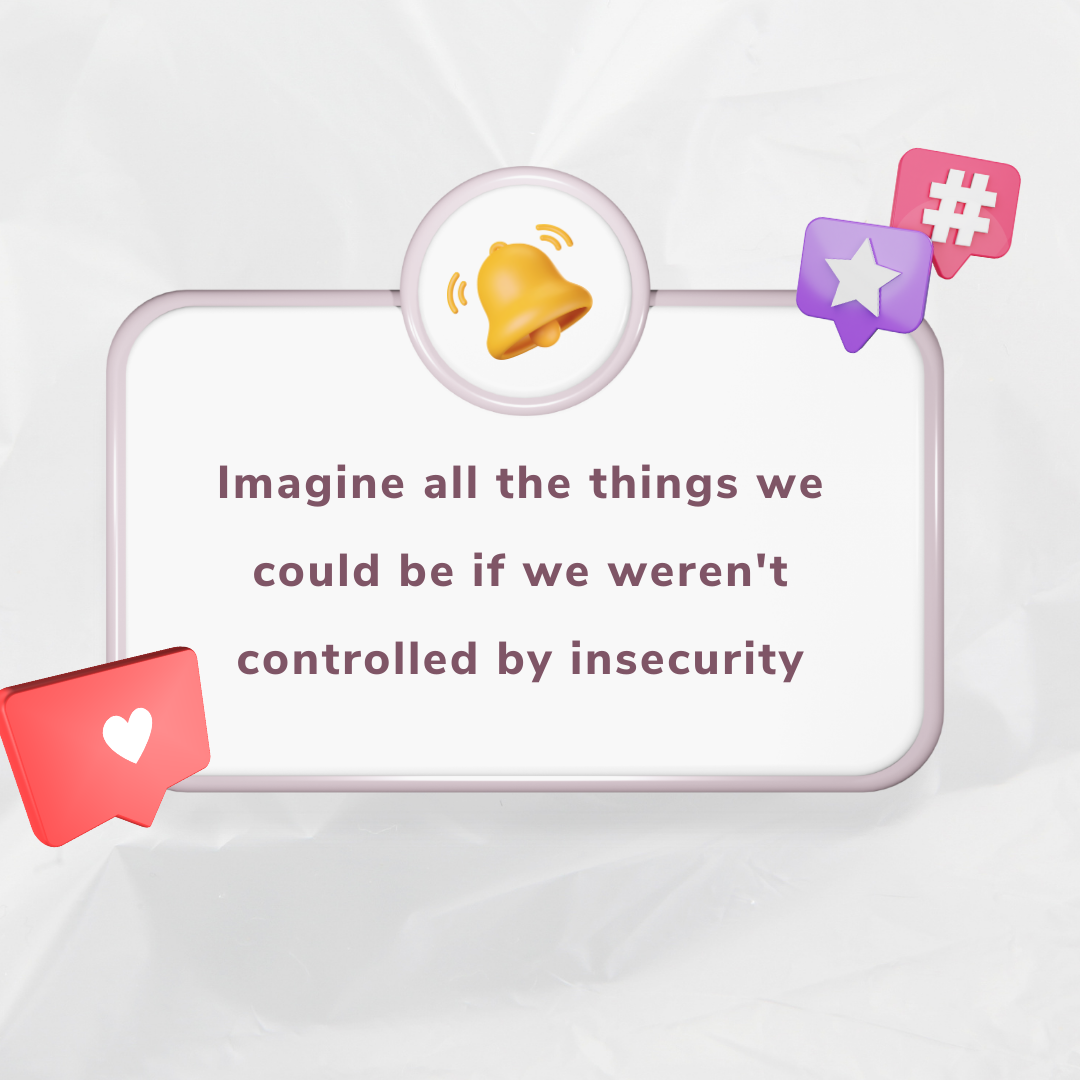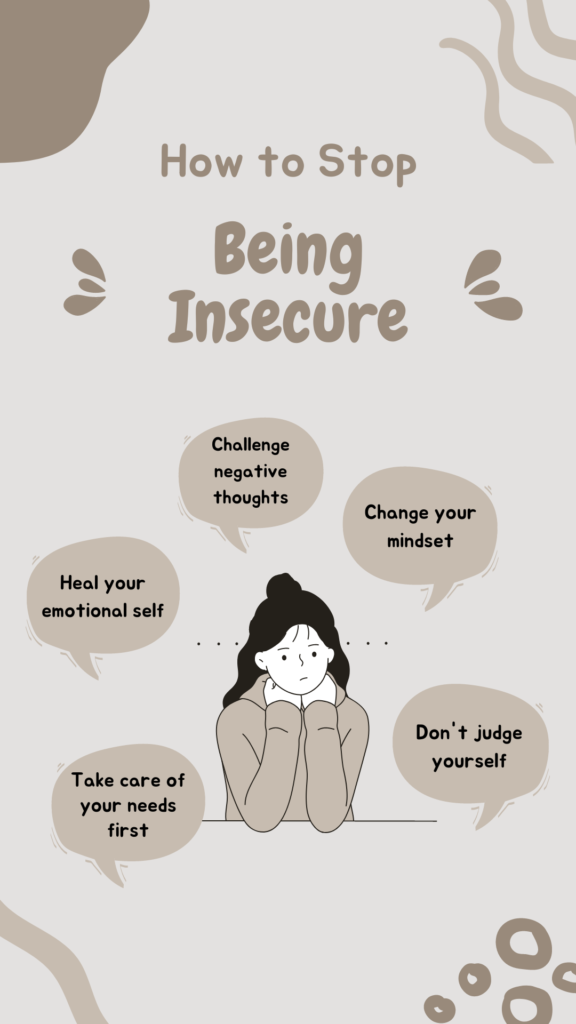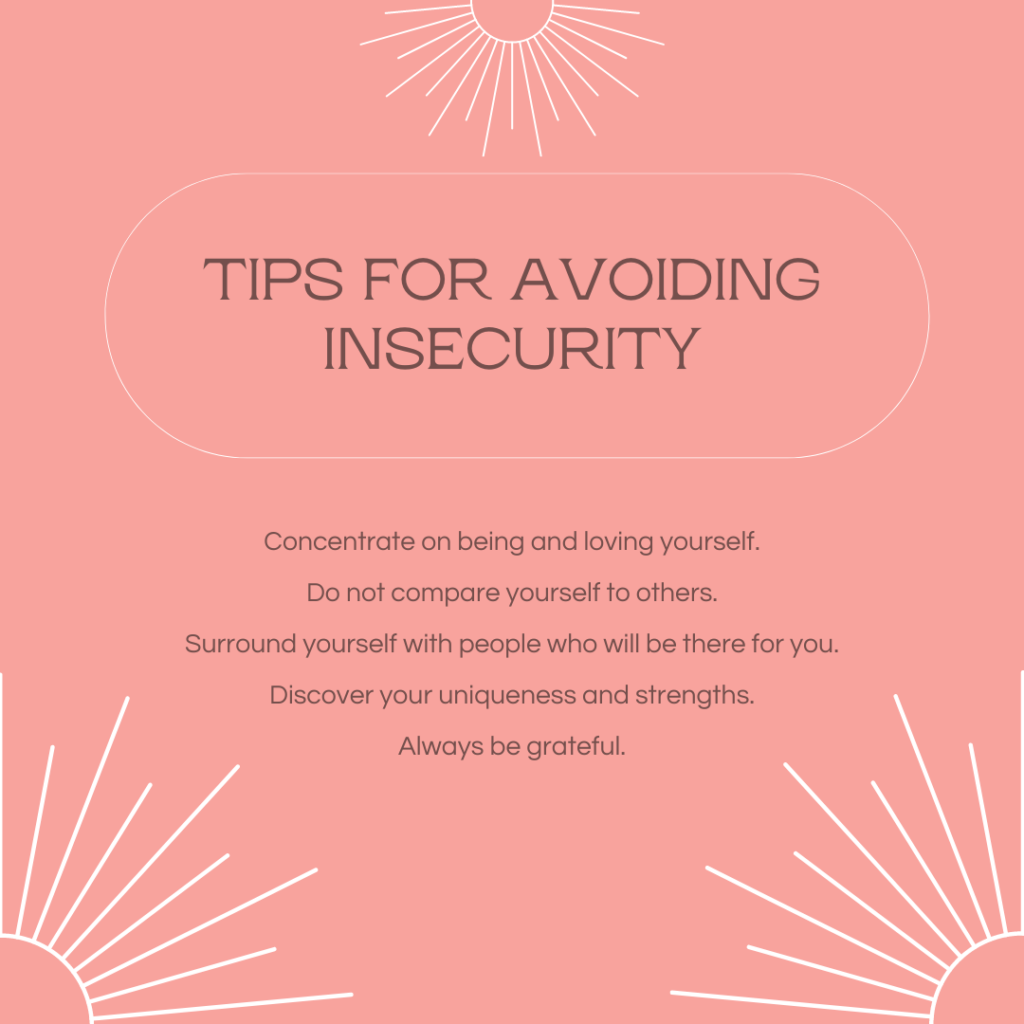“Insecurity is the inability to trust oneself and one’s abilities, resulting in a constant need for validation from others.”
Insecurity is a feeling of uncertainty or inadequacy about oneself or one’s abilities. It’s a common human experience that can arise from various circumstances, such as personal relationships, work, or even social media. Insecurity can manifest in different ways, and it can be challenging to overcome. In this blog, we will discuss insecurity, the real-life situations where one feels insecure, and the feelings one goes through while facing insecurity.
There are many common insecurities that people experience in their lives, from physical appearance to social status to career success. Here are some examples of these insecurities and how people express them:
- Physical appearance insecurity: Many people feel insecure about their physical appearance, such as their weight, height, or facial features. This can lead to negative self-talk and a lack of confidence. For example, someone might say, “I hate the way I look in this outfit. I feel so fat and unattractive.”
- Social status insecurity: Others may feel insecure about their social status, such as their job, income, or education level. This can lead to feelings of inferiority and anxiety around others who they perceive as more successful. For instance, someone might say, “I’m just a lowly receptionist. Everyone else at this party is a CEO or a doctor. I don’t belong here.”
- Relationship insecurity: People may also feel insecure in their relationships, whether it’s with friends, family members, or romantic partners. This can stem from a fear of rejection or abandonment, leading to clinginess or jealousy. For example, someone might say, “Why haven’t they texted me back yet? Do they not like me anymore? Maybe I’m not good enough for them.”
- Performance insecurity: Another common insecurity is performance anxiety, where people doubt their abilities and worry about failing or not measuring up to others. This can manifest in academic or professional settings, as well as in hobbies and sports. For instance, someone might say, “I’m not sure if I’m ready to present this project. What if I mess up and everyone thinks I’m incompetent?”

Feelings One Goes Through While Facing Insecurity
- Self-doubt – Insecurity can lead to self-doubt, where one questions their abilities and worth. This can be a vicious cycle, as self-doubt can lead to further insecurity.
- Anxiety – Insecurity can also cause anxiety, where one may feel on edge or worried about the future. The fear of failure or rejection can cause anxiety and affect one’s mental health.
- Low self-esteem – Insecurity can lead to low self-esteem, where one may feel unworthy or inadequate. Low self-esteem can affect all aspects of life, from personal relationships to work.
- Isolation – Insecurity can cause one to withdraw from social situations, which can lead to isolation and further insecurity. The fear of judgment or rejection can cause one to avoid social situations, leading to a lack of connection and support.

Do you ever feel like you’re just not good enough? Like no matter what you do, it’s never quite good enough to measure up to your own standards, let alone the expectations of others? I know I do. And it’s a feeling that can be so overwhelming and all-consuming that it can be hard to see a way out.
For me, this insecurity has been a constant companion throughout my life. It’s not that I haven’t had successes or achievements, but they always seem to be overshadowed by the things I didn’t do well enough, or the opportunities I missed. I find myself constantly comparing myself to others, feeling like I’m always falling short. And the worst part is, I know I’m not alone in this.
So how do we deal with this overwhelming insecurity of feeling like a failure? It’s not easy, but here are a few things that have helped me:
- Recognize that perfectionism is a trap. The more we strive for perfection, the more we set ourselves up for failure. It’s important to strive for excellence, but not at the cost of our own mental health and well-being.
- Practice self-compassion. Instead of beating ourselves up for our shortcomings, we need to treat ourselves with kindness and understanding. Remember that everyone makes mistakes, and it’s okay to not be perfect.
- Focus on progress, not perfection. Instead of getting caught up in the end result, focus on the journey and the small steps you’re taking towards your goals. Celebrate your successes, no matter how small.
- Surround yourself with positivity. Surround yourself with people who lift you up and support you, and try to limit exposure to negativity and criticism.
- Seek help if you need it. If your feelings of inadequacy are overwhelming and impacting your daily life, consider talking to a therapist or counselor who can help you work through these feelings.

Remember, feeling like you’re not good enough is a common insecurity that many people experience. But it doesn’t have to define you. With time, patience, and self-compassion, you can learn to manage these feelings and move towards a more positive and fulfilling life.
Overall, insecurity is a universal experience that can affect anyone, regardless of age, gender, or background. It’s important to acknowledge and address these insecurities, whether through self-reflection, therapy, or support from loved ones. Remember, everyone has their own struggles and imperfections, and it’s okay to not have everything figured out all the time.
